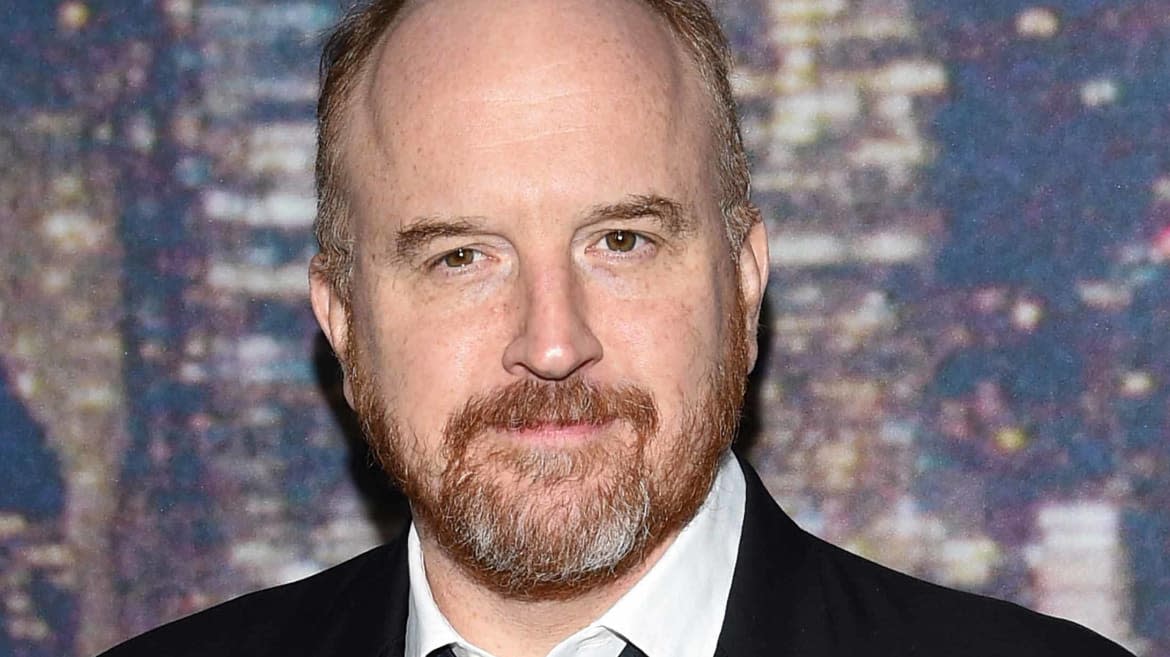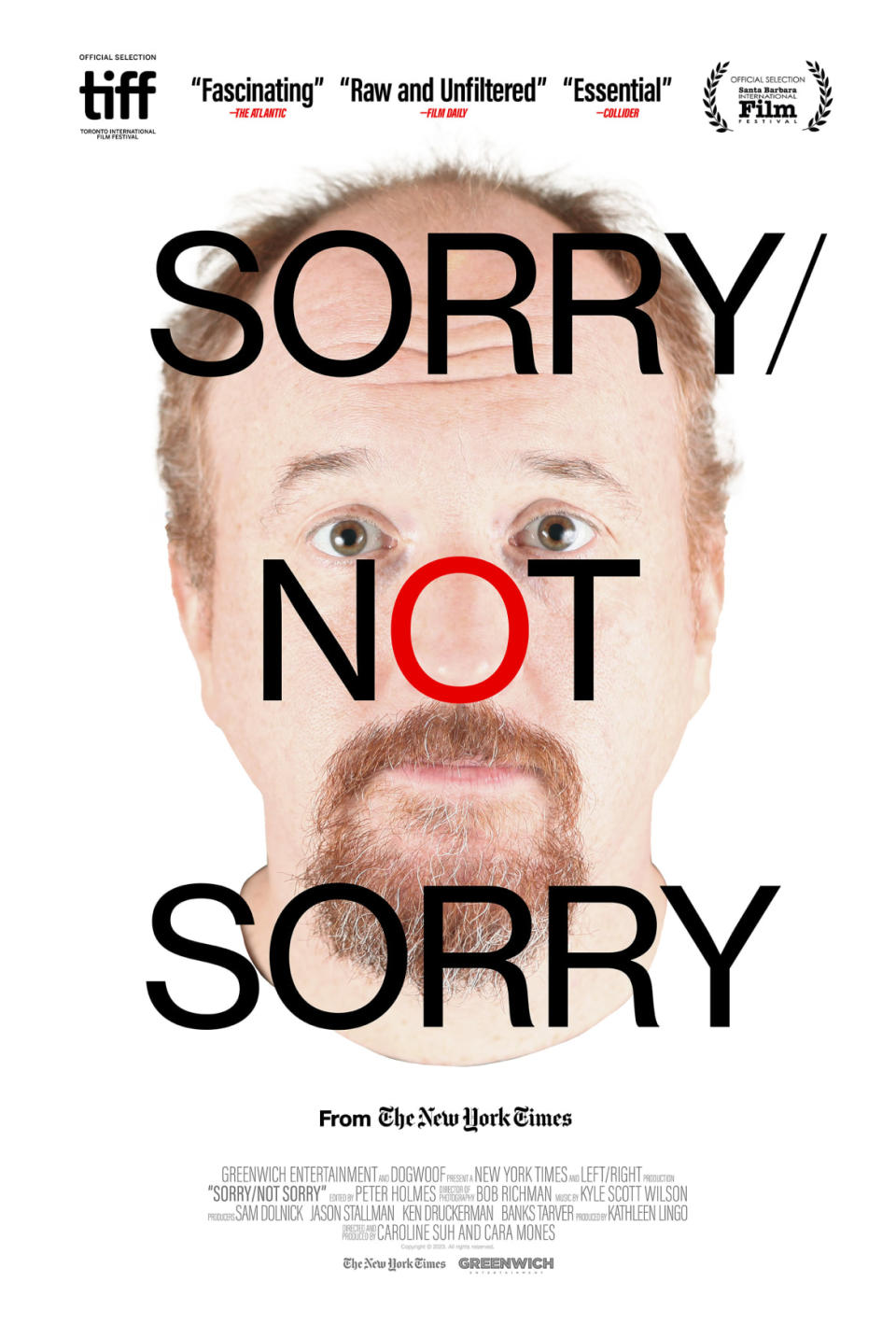Louis C.K. Documentary Lets Women He Harassed Have the Last Laugh

The trailer for a new documentary about Louis C.K. opens with footage of fellow accused predator Charlie Rose describing the comedian as a “philosopher king” in the mold of Lenny Bruce or Bob Dylan. All C.K. could do in response was reply, “Jesus” and bury his head in his hands.
Sorry/Not Sorry is ostensibly about C.K.’s ongoing (and largely successful) attempts at a comeback after getting “canceled” in the fall of 2017. But more than that, as evidenced in the exclusive trailer below, it is a chance for the women who first spoke out against him to tell their stories with more time and space (and humor) than they were ever given at the height of the #MeToo movement.
Most notably, comedian Abby Schachner, whose career will likely always be defined in relation to the man who she says masturbated on the phone with her against her will, gets in a pretty funny joke early in the trailer: “When I said I wanted to work with Louis C.K. I should have been more specific.”
The documentary, which is co-directed by Caroline Suh and Cara Mones and counts The New York Times among its producers, had its world premiere at the Toronto International Film Festival last fall and is set to hit theaters and VOD on July 12. In addition to featuring interviews with C.K.’s victims, it includes the voices of several prominent comedians and cultural critics, including The Daily Beast contributors Sean L. McCarthy and Michael Ian Black.
Tig Notaro Tried to Warn Us About Louis C.K. Now, She’s ‘Happy to Move On’ From Him.
“The most essential thing we took away from making the film wasn’t really about Louis C.K. himself or men behaving badly,” Suh tells The Daily Beast. “What was really so surprising was learning how hard it is to redirect one’s focus from worrying about the men—why Louis did what he did and what happened to him—to asking why it took so long for anyone to care. And most importantly, why we don’t really take much time to think about why women get so much punishment for just saying what happened.”
Mones, meanwhile, says that working on the film made her better understand how the cultural conversations around sexual harassment are “missing the point.” Instead of “was the behavior illegal?” she thinks a “more basic” question is, “Do we believe it is fair to treat people this way?” She adds, “Sexual harassment forces people to have to make calculations long after the incident—maybe you decide to turn down a job or you avoid a networking event. Even seemingly small moments can add up and change the course of a career.”

Ultimately, Sorry/Not Sorry does not attempt to answer the fundamental question of whether C.K. has faced any lasting career consequences for his behavior. “That’s a question that the film brings up and leaves the audience to answer,” Suh tells us. “While Louis C.K. certainly lost a lot in the process, he still has a lot of fans who don’t really know or care about what happened.” Instead, she says, “I think you could say that a lot of women are ‘canceled’ before they even get a chance to do something because, as we tried to show in the film, building or having a career after something like that happens can become more difficult in an already very difficult field like comedy.”
“It can be easy to just focus on Louis and what we think should or should not happen to him, but the film shows that Louis’ behavior was an open secret for a very long time,” Mones adds. “I think we need to also look at the role we all play in these kinds of stories, and whose careers we work hardest to protect.”
Why Are Male Comedians So Scared to Talk About Louis C.K.?
Get the Daily Beast's biggest scoops and scandals delivered right to your inbox. Sign up now.
Stay informed and gain unlimited access to the Daily Beast's unmatched reporting. Subscribe now.


